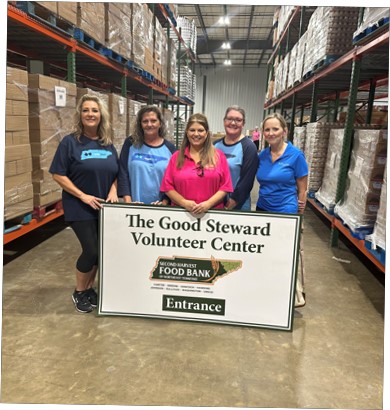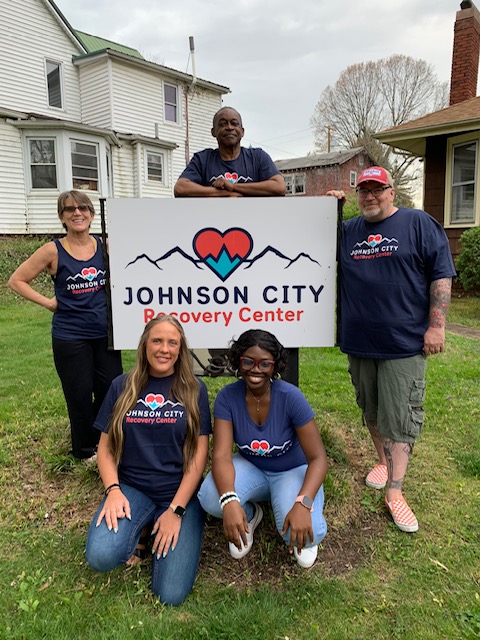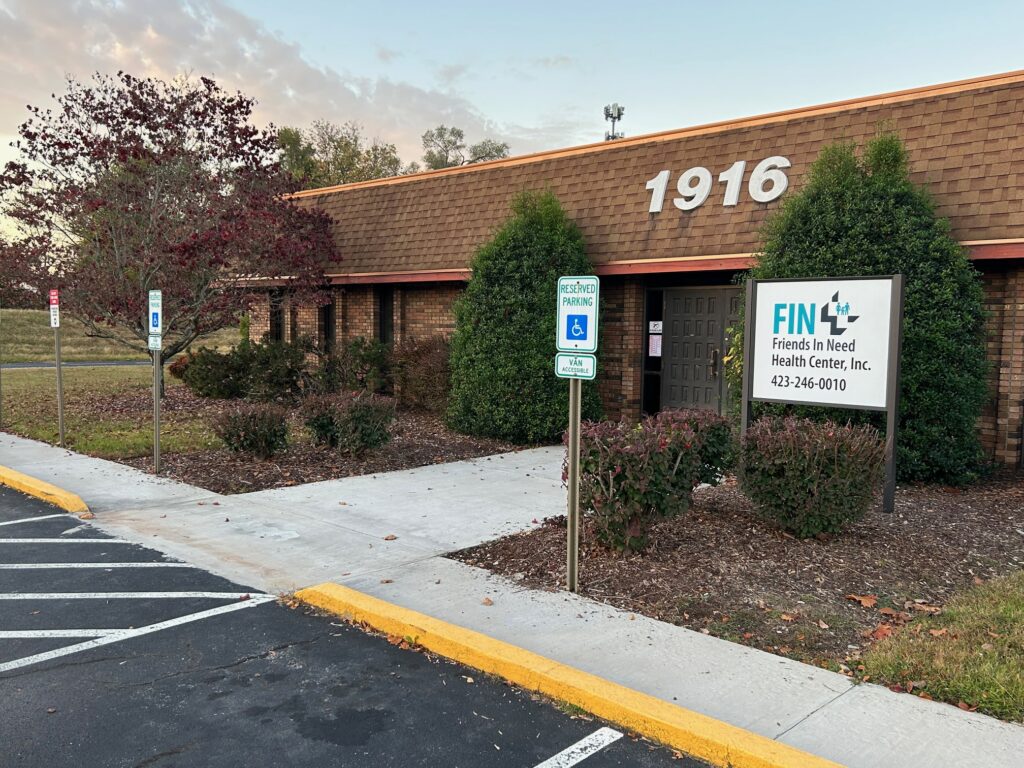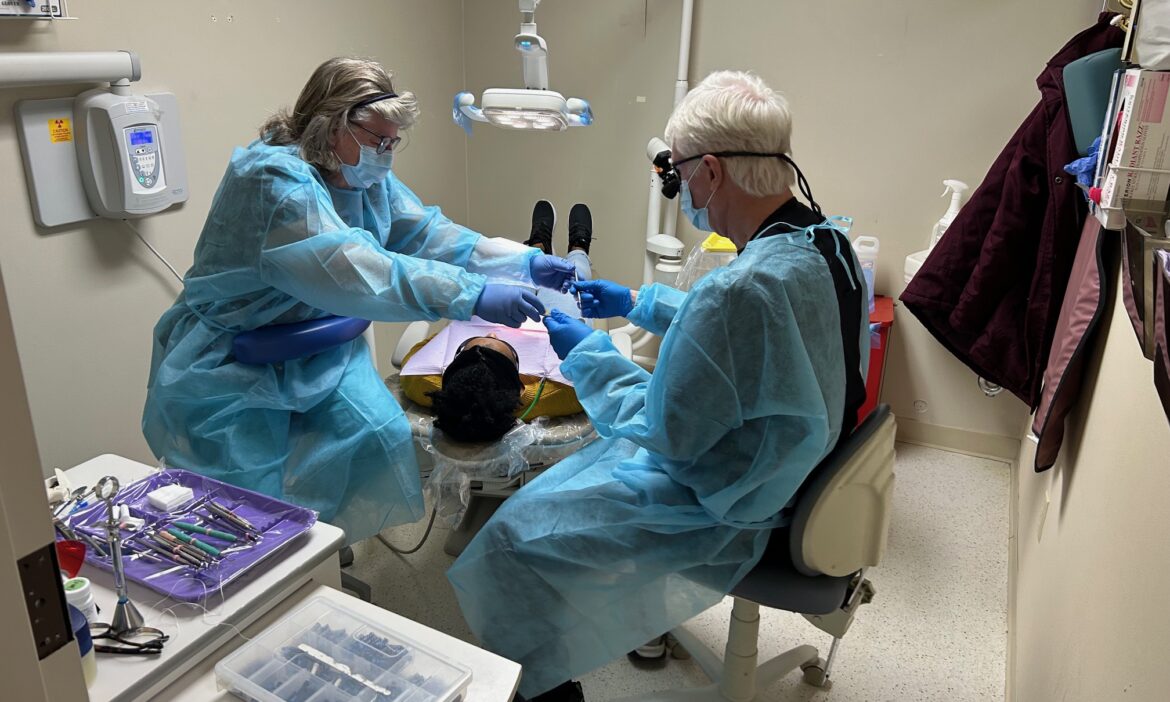Three nonprofits in Northeastern Tennessee are finding innovative ways to address the needs of area residents with support from the BlueCross BlueShield of Tennessee Community Trust. Here’s how.
Fighting hunger in Northeast Tennessee
Second Harvest Food Bank of Northeast Tennessee
Second Harvest Food Bank of Northeast Tennessee distributes 1 million pounds of food each month, mostly through food pantries and mobile food distributors. However, some residents are home bound or live in a remote area that puts food resources out of reach. Second Harvest’s Senior Grocery and Home Delivery programs help support these individuals.
The programs provide a 35-40 pound custom food box along with fresh produce, frozen meats, and dairy to more than 4,000 seniors and their dependents. Second Harvest delivers them to 18 senior apartment complexes and 140 rural or home bound residents.
The BlueCross Community Trust provided $5,000 to support Second Harvest’s distribution programs.

“We’ve been working to increase our delivery efforts because as the cost of food has gone up, the ability to access grocery stores has gone down,” explains Kristen Reedy, Second Harvest development director. “This year’s support from the BlueCross Community Trust allowed us to increase the home delivery network from 100 to 140 clients.”
The home delivery programs are one of the many ways Second Harvest is connecting directly to residents of its eight-county region. Through its Food for Kids program, it delivers food to apartment complexes and other places kids gather. During the school year, it distributes food through schools for weekend consumption through Backpacks for Kids. And, it just completed Project Thanksgiving, which delivered 7,000 boxes of food, serving 28,000 people thanks to the volunteer hours of our BlueCross TeamBlue employee volunteers.
“Second Harvest has been working to provide food assistance and help stabilize the lives of residents for 38 years,” Kristen says. “We hope to continue growing the ways we reach people in need and reach more of them.”
Supporting our neighbors in recovery
Johnson City Recovery Center
While it has been open less than a year, the Johnson City Recovery Center (JCRC) has served more than 5,000 people in the Tri-Cities area through its addiction recovery groups and events.

“We’ve exceeded what we thought we’d do in our third year in less than 12 months,” says Executive Director Dottie Greene, PhD. “Although we don’t provide professional treatment services or recovery housing, we do provide everything in between to help remove barriers to recovery. The need for support is huge.”
The JCRC hosts 20 different recovery support groups per week, and another four that meet monthly. It also offers telephone recovery support, recovery coaching, and resource navigation. The center is also a gathering space, with a television lounge, a computer lab, and meeting rooms.
“We are a safe place for those in recovery to come and start to rebuild their social recovery capital,” Dottie explains. “They can come here for a meeting, to talk with someone individually or just to hang out. We are 100 percent peer led and operated, which means that every member of the staff is in recovery. So, we can draw on our own lived experiences with addiction and recovery to help provide hope and help build a recovery-oriented social network for those we serve.”
Another challenge for those in recovery is transportation. Getting to a medical appointment, a pharmacy, a court date, recovery housing or job interview can be major obstacles to recovery. That’s where the $1,000 from the BlueCross Community Trust comes in.
“Transportation is one of the biggest barriers for people in recovery,” Dottie says. “Many times, people will be in recovery housing and will need to have a job within a certain amount of time. Without a car or money, they’re not going to be able to get to and from work, much less a job interview. With the funds from the BlueCross Community Trust, we help them get the transportation they need. We can purchase 30-day bus passes for individuals to get to and from work that first month or take them to health and behavior heath appointments.”
“If one of us is doing the transporting, we call it ‘recovery coaching on the go.’” Dottie says. “We have a captive audience where we can talk about recovery and share our experience, strength and hope. Some of our best recovery coaching happens during these rides.”
Assistance through charitable care
Friends in Need

“When discussing prayer, Pope Francis once said, ‘You pray for the hungry. Then you feed them. That’s how prayer works.’” says Betsy Cooper, executive director of the Friends in Need Health Center. “As a faith-based charitable clinic, that’s our mission: we pray for the people in need. Then we assist them.”
Friends in Need has been serving residents of Northeast Tennessee and Southeastern Virginia for 28 years. The clinic provides medical and dental services to the uninsured and underinsured.
“We want to become patients’ medical home,” Betsy says. “So often, someone comes in for one service, but has multiple needs. Recently, we had a dental patient with an abscessed tooth. In attempting to treat that ailment, we discovered that she had diabetes and that her blood sugar had skyrocketed. We were able to treat her medical condition and then took care of her tooth. If we hadn’t treated her, she probably would have ended up in the ER for her blood sugar. She came back the other day – she is now employed and has insurance, so she doesn’t need us anymore. That’s what I consider a real success story.”
In addition to keeping patients from going to the ER, Friends in Need receives a lot of patients who are being discharged from the ER through a partnership with Ballad Health.
“We provide a variety of services, including primary care, women’s health and COVID education and testing,” Betsy explains. “We even have an ob-gyn who comes in twice a month to see patients. We also connect patients with social services in the area. If we get them in the door, we do everything possible to meet all of their needs. And no one is turned away based on their inability to pay.”
Over the past three years, the BlueCross Community Trust has donated a total of $20,000 to Friends in Need.
“We are very grateful to the support we receive from BlueCross,” Betsy says. “Every dollar has gone directly to patient use. It helps pay our support staff so we can see a growing number of patients in need of our services.”
To be eligible for grants from the BlueCross Community Trust, nonprofits must focus on:
- Charitable clinics
- Chronic disease management
- Diversity and inclusion
- Youth development
For additional information on eligibility criteria and application deadlines, visit BCBST.com.

